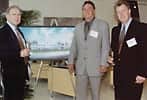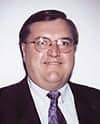Parkridge Sleep Disorders Center

Although Parkridge Sleep Disorders Center has been in operation for just about a year and a half, it already has garnered an excellent reputation in its hometown of Chattanooga, Tenn. The center is known and referred to regionally for its high level of patient care, its capabilities for conducting quality polysomnographic studies, and its commitment to educating practitioners and patients alike. These are impressive aspects of the center, but they hardly happened by accident.
“We felt that some competition was needed for the other sleep laboratories in town, and we wanted to make the best facility around,” says Kendall White, RPSGT, director of the facility.
So after several years in the planning stages, Parkridge opened its 5,400-sq-ft facility on April 2, 2000. The sleep center, which is part of the Parkridge Medical Center, currently has a four-bed capacity, but a backlog in sleep studies is already driving the facility to add two beds. Parkridge received accreditation by the American Academy of Sleep Medicine on March 20, 2001, less than a year after it opened. Only one of the competing sleep laboratories in Chattanooga is accredited.

The center does about 100 studies per month and has the capability to diagnose and treat excessive sleepiness, nocturnal seizures, insomnia, snoring, sleep-wake cycle disturbances, apnea, narcolepsy, restless leg syndrome, nocturnal periodic limb movements, and other parasomnias. The laboratory is staffed by two board-certified physicians—pulmonologist Daniel Smith, MD, and neurologist Tom Devlin, MD, PhD—as well as several registered technologists. Parkridge maintains a consistent staff-to-patient ratio of two to one.
Patient Care
Since Parkridge is hospital-based, patients can be studied as part of their inpatient hospital stay. In addition, all patients have access to emergency care resources. This allows Parkridge to serve a varied range of patients, and provide testing not available at the other centers in the area. Parkridge’s referral base is regionwide, with the most referrals coming from the largest pulmonary group in town, which also is connected to Parkridge Medical Center. Devlin and Smith read the studies, which are then transcribed and passed on to the referring physician. Each referring physician receives a complete sleep report, including definition and diagnosis of the problem plus recommended treatment plans.
During the planning stages, space was made available within the facility to allow for pre-evaluations and post-evaluations to be done on-site.
“We are the only sleep laboratory in the area doing that because we have space available and the others do not,” White says.
EEG Studies
One of the biggest elements setting Parkridge apart from other facilities, however, is its use of 12-channel electroencephalographic (EEG) studies, which give the center the ability to do a level of testing unavailable at other sleep laboratories in the area.
“Most sleep laboratories do standard 4-channel EEG, which monitor only the central and occipital regions of the brain. In contrast, we can monitor 12 areas of the brain, as well as seizure activity,” White says.
The decision to include full EEG study equipment was tied to the involvement of Devlin, who heads Parkridge Medical Center’s neurodiagnostics department, and is director of Neurologic Research Associates, one of the largest clinical research programs in the country.

“They focus on neurological stroke research, and one of the reasons we bought the fully EEG-capable polysomnographic equipment was to work with his group as much as possible,” White says.
“Chattanooga is deeply ensconced in the ‘stroke belt’ with one of the highest incidences of stroke anywhere in the nation. A very large portion of these patients have undiagnosed sleep apnea. Our center specializes in the proper diagnosis of these patients—many of whom have noted concomitant seizure disorder. Our full EEG capabilities give us the opportunity to detect seizure activity that cannot be exposed using the standard 4-lead EEG,” Devlin says.
The EEG studies currently can be run on only one patient per night, but the two new machines being added with the center’s expansion will also be capable of running the more comprehensive tests.
“Most sleep laboratories have the same basic equipment, but we wanted to go a step farther and provide our patients with more services. No other laboratory in the area can do a fully complementary EEG study,” White says.
Research
Although the laboratory does not yet do research studies, White says the facility is open to it, depending on the requirements. As far as patient sleep studies at Parkridge are concerned, as many as possible are run on the 2-night model. White says the center is not comfortable with the results of split-night studies.
“It is hard to titrate someone in 3 to 4 hours. We do not believe in the accuracy of home sleep testing either,” he says. “We looked at it, but the insurance doesn’t pay well, leaving a burden on the patients, and the patient care is not what it can be with our in-laboratory testing. Basically, there are too many variables, and I much prefer to have someone in the next room able to intervene when something goes wrong. Home sleep studies are not a direction I feel sleep needs to go, and we are going to fight the trend tooth and nail if it does go that way.”
However, if a patient is concerned that they might have apnea but they do not want to do a full night’s test, the center does provide a free oximetry reading. This test can be undertaken in the patient’s home. White says about three or four of those tests are done each week and about 70% of the patients go on to have the full night’s sleep test.
“That gives us a way to obtain data that can show the patient something is wrong with their sleep, which then puts them at additional risk of heart attack or stroke,” he says. “Once they see that, they can come in and get something done about it.”
And once they do come in, Parkridge offers the highest level of patient care. “We feel that we set a new standard of care,” White says. “According to several physicians, we are regarded as the premiere sleep center in the area for our patient care. We always get thank-yous and kudos from our physicians and our patients.
“When a patient is seen for pre-evaluation, they receive a tour of the facility so they know what to expect when they get here. We are the only facility that does that.”
Accommodations
Parkridge offers its patients free breakfast, and has a guest room available for families. All the rooms are private, have their own bathroom, and are lavishly furnished with Queen Anne cherry furniture, soap and shampoo from Bath & Body Works, and Egyptian cotton towels and bedding. “Those little things really set us apart from the others,” White says.
Parkridge likewise works hard to serve the needs of patients who never even set foot through the doors of the laboratory. The center runs a biannual continuous positive airway pressure (CPAP) clinic, which is open to anyone in Chattanooga who is using CPAP. White also started “Sleep Well of Chattanooga,” which provides speakers for civic organizations and religious groups and delivers two or three talks per month. Once a year, with the assistance of a local otolaryngologist, Smith and Devlin conduct a public seminar about sleep apnea and some of the surgical alternatives. The event is promoted in local magazines and newspapers, and has drawn about 70 attendees in the past.
There also are two different monthly spots held on local television stations that address sleep-related disorders. The center is working with a narcolepsy support group to disseminate more information to the public.
“When they hired me, I came from a place that did no public education and marketing, and I thought that hurt the community,” White says. “It still is not going on as much as it should here, but the week I started is the week we began some of these programs, and interest has snowballed since then. The CPAP clinic goes over very well, and patients always ask when we are going to have another one.”
Conclusion
Parkridge has plans under way to address the needs of staffers as well. The center is pursuing a fellowship program for physicians and a training program for technologists that would offer polysomnography courses in conjunction with a local 4-year college.
“It will be modeled on a similar program running in Huntsville, Ala,” White says. “One reason why we believe this is necessary is because there is a significant shortage of professionals in this field. There are less than 4,000 registered technologists in the country. I think that’s because sleep is where respiratory [care] was 20 years ago: it’s a new field that a lot of people don’t know exists or how they can get into it. We want to help lead in the direction that sleep needs to go.”
Liz Finch is a contributing writer for Sleep Review.



